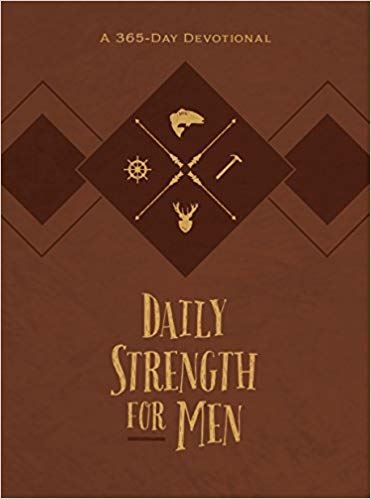Are Small Churches an Essential Element in a Divine Strategy?

Barna Group research reveals that nearly half of American churchgoers attend a church of 100 or fewer members. And according to Carl George and Warren Bird, 85% of Protestant churches in North America have fewer than 200 regular attendees.
So why do most pastors of small churches feel like failures?
Karl Vaters certainly did. The long-time lead pastor (now teaching pastor) at Cornerstone Christian Fellowship in Fountain Valley, California was discouraged and frustrated because his church was relatively small and not growing.
“I believe that a healthy church should grow,” he says. “Real church growth – not transfer growth – means people being saved, being rescued from hell into heaven, coming into the Kingdom of God. There are eternal lives at stake here. If my church is healthy and reaching the community and people are being saved, then my church will get bigger.”
His church was healthy, but it wasn’t growing…at least, not much. It didn’t change from a small church to a large church. “I went through a lot of trauma trying to sort it all out,” he recalls, “because I was working really hard to make my church grow and it wasn’t happening.”
Numbers are not the whole success story.
Vaters’ struggles landed him in a Christian counselor’s office. “I needed help to figure out what was wrong with me and my church, why I was broken, and why I was mad at God,” he says. “After a couple of sessions of venting my frustrations, I asked the counselor, ‘What’s the answer? What do I need to do here?’”
The counselor responded that Vaters needed to figure out how to redefine success. “I wanted to punch him in the nose,” recalls Vaters. “What I thought he was saying was, ‘You’ve been trying to jump 10 feet. You can only jump eight, so lower the bar to eight, jump over that, and call that success.’” But the counselor meant something else: Vaters was relying exclusively on numbers, but numbers told only part of the story.
“In the church, we don’t have a product to sell or a service to offer like a restaurant does or a book store does,” says Vaters. “Our ‘product,’ for lack of a better name, is relationships.”
Vaters continues, “We are in the business of helping people love God and love others. “
Says Vaters, “Love is impossible to measure, so we use numbers as a substitute, to try to help us understand if we are helping people love God more and love others more.”
We shouldn’t ignore numbers, he adds, because they can alert us to problems and give us indications of success. The more first-time confessions of Christ, the better. The more baptisms, the better. Same with Sunday worship attendance and completion of discipleship courses. But none of these numbers tells the entire story of anyone’s relationship with Christ. “We have to stop acting like numbers are the entire package,” he concludes.
If you can’t rely exclusively on numbers, then how do you know if your small church is healthy?
A good starting point is Vaters’ blog post, “23 Non-Numerical Signs of a Healthy Church.” Those signs include:
- The Church Goes Into the Neighborhood
- The Congregation Is Getting Younger, not Older
- Volunteerism is High
- New Ideas Are Embraced
- The Bible Is Honored
- People Like Bringing their Friends
- People Are Being Saved and Discipled
Vaters draws attention to two of the signs: demographics and teams. “A typical unhealthy church looks like its community used to look back when the church was founded or during the last successful pastorate,” he says. “A healthy church looks demographically like the community that it is trying to reach.”
“Another good sign of health,” Vaters contends, “is teams instead of committees. A committee talks about doing stuff; a team actually does stuff. A church that is heavy on committees and light on teams usually is an unhealthy church.”
Small churches have three distinct strengths:
While acknowledging that small churches are not for everyone and that large churches and megachurches have advantages for some folks, Vaters maintains that small churches have some strengths that their larger counterparts can’t match. Those strengths include:
- A personal relationship with the pastor:“I understand that, when a church grows to a certain size, the pastor can’t be available to every member,” says Vaters. “But there are a lot of people who feel the need to be pastored by their pastor. If the stats are correct, then over half of the Christians in the world feel that way. It’s important to them that they can get the pastor on the phone. That he knows them by name. People want a personal connection with their spiritual leader.”
- Opportunities to develop your gifts and talents:“A small church offers a shorter learning curve and more opportunities for people to make mistakes,” says Vaters. In his church, the worship leader was training a 12-year-old drummer and had to throw him into action one Sunday when no other drummer was available. “You can’t do that in a big church,” says Vaters. “And you shouldn’t do that in a big church. It’s not right in a church of 3,000 – to either the 12-year-old, the 3,000 people, or the band – to have someone on the big stage who is still figuring it out. But in a small church you can do that – to give people the opportunity to learn as they go and make mistakes.”
- Opportunities for laypeople to lead:“Another advantage of small churches is that people who have a leadership gift and want to be a part of leadership can do that,” explains Vaters. “Their voice matters more in a small church.” Lay leaders can help pastors get out of their “Christian bubble” and increase their awareness of and sensitivity to the realities of the lives of congregation members.
Let’s appreciate and celebrate small churches.
Vaters wants to use his experiences to help others make their small churches healthier. He has written two books: The Grasshopper Myth and Small Church Essentials. And he operates a website, newsmallchurch.com, that strives to encourage, connect, and equip innovative small-church leaders. That website includes blog posts and a broad range of other resources.
Leaders are not Vaters’ only audience. He wants all Christians, regardless of where and how they worship, to appreciate and even celebrate small churches.
“Over half the Christians on earth are involved in churches with fewer than 250 people in them,” he says. “Those of us who pastor small churches have an awesome responsibility – the spiritual well-being of more people than any denomination on earth.”
“Small churches,” Vaters encourages, “are not a problem. They are an essential element in a divine strategy.”

Photo Credit: ©GettyImages/DGLimages
Originally published July 10, 2019.







